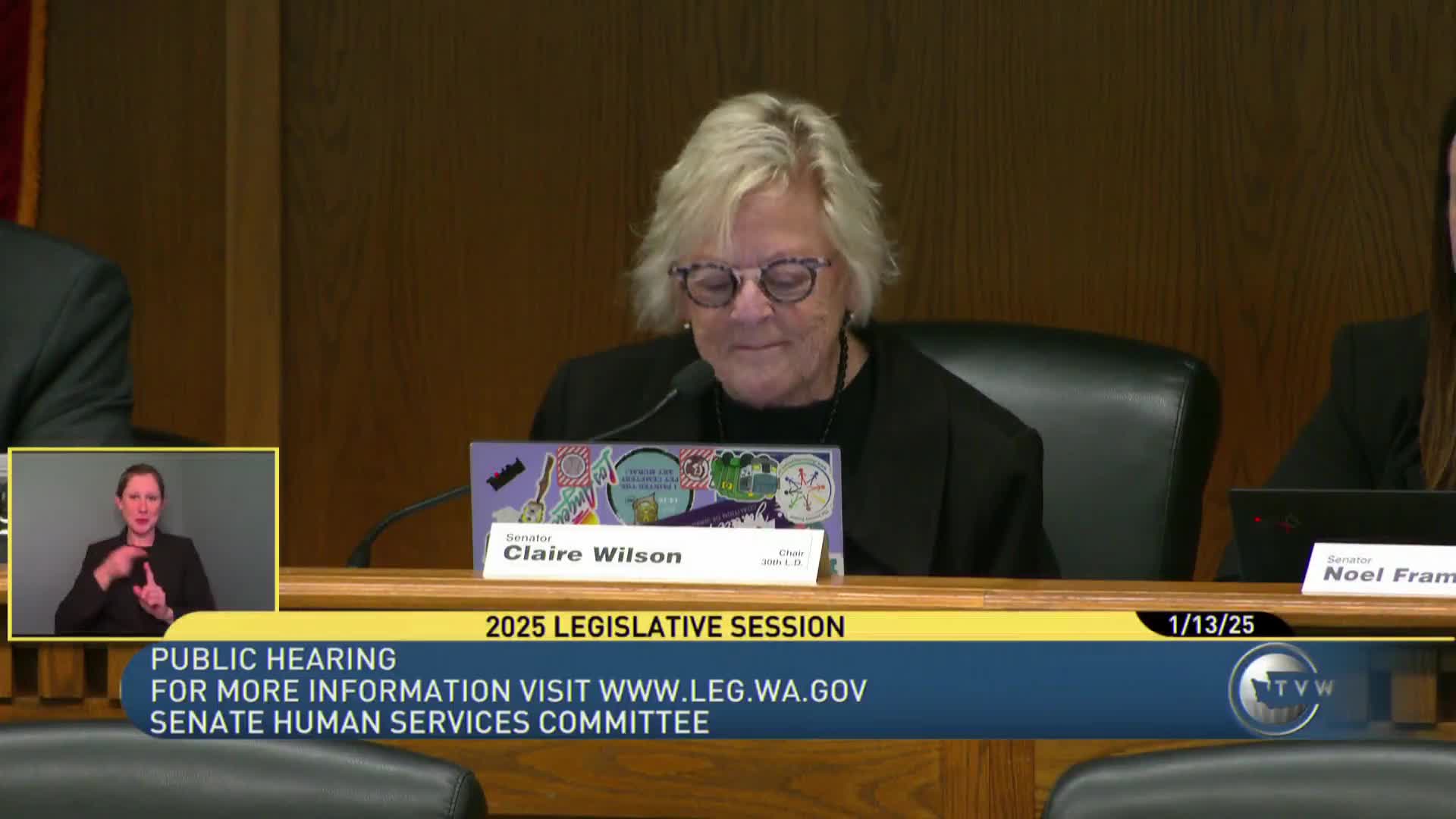Senate committee hears bill to provide housing vouchers for youth in extended foster care; advocates testify about homelessness risk
Get AI-powered insights, summaries, and transcripts
Subscribe
Summary
Senate Bill 5082, introduced in the Senate Human Services Committee, would create an extended foster care (EFC) housing program in the Department of Children, Youth and Families to provide rental assistance to youth who remain in EFC and are experiencing homelessness or are at imminent risk of homelessness.
Senate Bill 5082, introduced in the Senate Human Services Committee, would create an extended foster care (EFC) housing program in the Department of Children, Youth and Families to provide rental assistance to youth who remain in EFC and are experiencing homelessness or are at imminent risk of homelessness.
Committee staff Lisonbee Mendiola briefed the panel on the bill and described the proposed program as modeled after the federal Foster Youth to Independence (FYI) voucher program. Mendiola said the bill would let eligible youth receive up to 36 months of rental assistance not to exceed a youth’s 21st birthday, with rent contributions set by fair market rent and youth paying no more than 30% of adjusted gross income in most cases.
“To be an extended foster care, also known as EFC, a person has to be dependent on their 18th birthday and can remain in the program until they turn 21,” Mendiola told the committee during the formal briefing. The staff briefing noted that federal FYI rules currently prevent simultaneous receipt of some federal vouchers and state EFC supports, leaving youth forced to choose between extended foster care and federal housing assistance.
Committee Chair Claire Wilson, who sponsored the bill, said the bill builds on earlier work to improve access to extended foster care and housing after passage of last year’s Senate Bill 5908. Wilson told the committee that approximately 13% of youth in extended foster care experienced homelessness in fiscal year 2024 and that the base supervised independent living stipend of $861 is “far short” of covering typical rent in parts of Washington.
Advocates and young people gave oral testimony in support. Charles Smith, public policy and advocacy director for the Mockingbird Society, told the committee: “These are not young people aging out of care. They are dependent youth under the care and custody of the state.” He and other advocates urged a narrow, targeted subsidy administered through housing authorities so youth need not exit state care to access housing assistance.
Several young people who experienced the foster care system gave personal testimony. Jonas Rios, a 22‑year‑old advocate, said he used an FYI voucher and described the difference stable housing made to his efforts to pursue education and stability. Esmina James Secret told the committee they had “spent over 600 nights in night‑to‑night placement” and said, “In February of 2024, we had 757 youth in EFC. 13% of those youth were homeless. That would be 99. We failed 99 young people.”
Other testimony emphasized mental health and daily survival stressors. Lex Senner, a Mockingbird chapter leader, said the bill “could take some major stresses out of my life” and described how constant financial stress undermines mental health and functioning. A Mockingbird representative reading testimony for a youth identified as Love Anatomy noted the difficulty of waiting lists for vouchers and the forced choice between federal vouchers and EFC supports under current rules.
On procedural and program details, committee staff said DCYF would collect annual data on housing status for youth in EFC, run a competitive procurement process for contractors with housing experience, and fallback to operating the program directly if no contractors are selected. The staff briefing also said rental assistance would be set by local fair‑market rents and that the program would cap youth contributions to rent and utilities at 30% (40% if rent and utilities exceed fair market rent in the youth’s area).
No fiscal note had been posted at the time of the committee briefing; Mendiola said a fiscal note request was submitted on December 20 and the fiscal estimate had not yet been received. The committee took testimony but did not hold a vote on SB 5082 at the hearing.
Next steps: Committee staff and sponsors indicated they will provide follow‑up information about the bill’s fiscal impact and implementation details. Advocates asked the committee for swift action to close the gap that forces some state‑dependent youth into homelessness while under state care.
